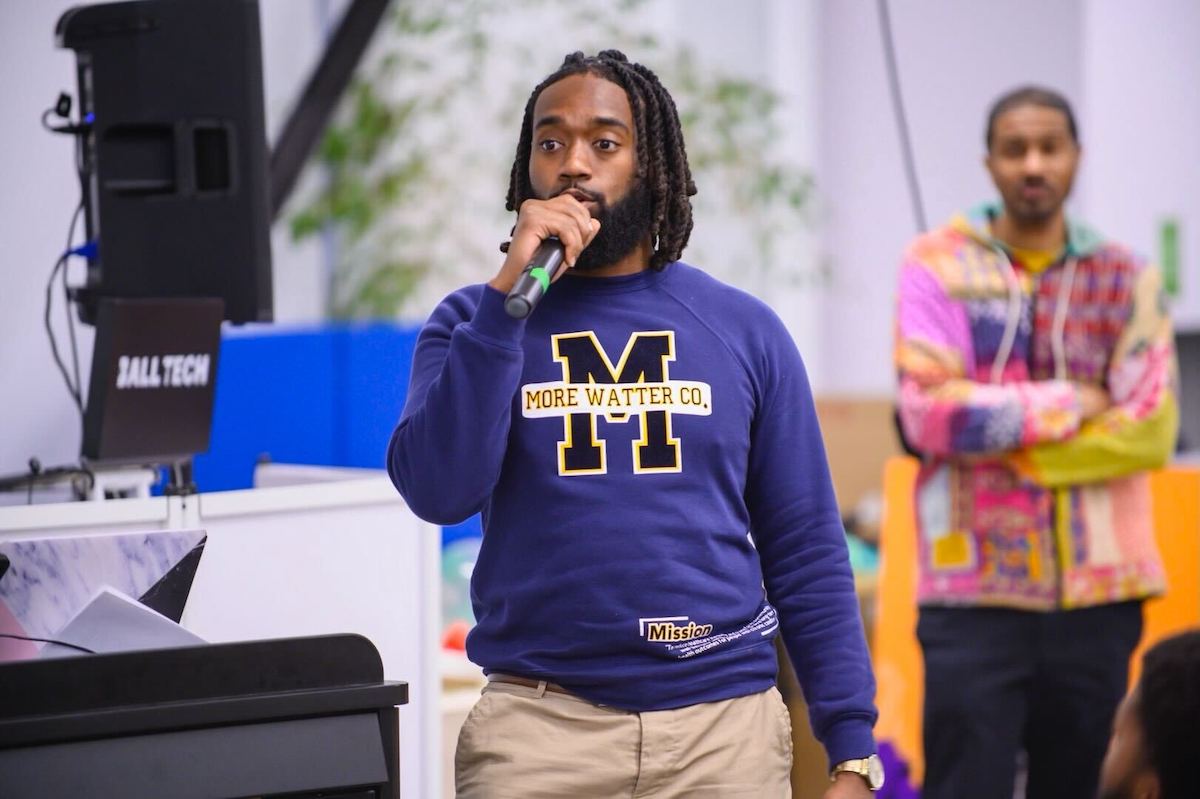In the ever-evolving landscape of social entrepreneurship and community impact, the Social Innovation Lab (SIL) accelerator at Johns Hopkins University (JHU) stands out as one of the older local hubs for innovation, collaboration and transformation, having been founded in 2011.
Current SIL Director Anthony Watters highlighted the importance of the kinds of opportunities that SIL provides for cause-driven innovators who are JHU students or community members.
“I believe that social enterprises are the catalyst to solving Baltimore’s most challenging problems by creating sustainable impact, while also spurring economic growth,” Watters said after the culmination of the lab’s last cohort.
Watters and SIL now actively seek the next class of such ventures, driven not only by financial success but also by the desire to create meaningful change in the region, for the program’s next cohort. The application deadline is Oct. 1, and Watters said that a variety of companies and organizations are eligible to apply.
“We welcome tech companies, for-profit ventures, nonprofits — our focus is on your ability to make an impact in Baltimore,” Watters told Technical.ly. He added that the selection process is industry-agnostic, underlining that the funding path chosen aligns with the specific goals and composition of the participating teams.
“Interviews will take place throughout October, and by early November, we aim to finalize the cohort selection,” Watters said, highlighting a notable change from prior years: “We’re starting a bit earlier in December, a departure from the previous start in January.”
Watters said that the program will run from then until May 2024, with a curriculum that emphasizes “human-centered design and customer discovery.” This approach ensures that “entrepreneurs devise strategies, iterate prototypes, refine business models and design a comprehensive impact strategy,” he said.
In May, Lena Tashjian, a teacher and the founder of the Baltimore City College High School Writing Center and Believe and Achieve Tutoring Association, received the top Cohort Prize from the latest SIL cohort. While Tashjian took home $20,000, she and her cohort colleagues each received $5,000.
Beyond the competitive elements, Watters noted the importance of connections and collaboration within SIL cohorts.
“The camaraderie within the cohort is a key element,” he said. “Being around 10 other teams or 10 other founders who are committed to similar work, regardless of industry, is one of the biggest pieces.”

Anthony Watters. (Courtesy photo)
Watters is about a year into his leadership of the SIL program, after having been a cohort member himself for his lifestyle brand More Watter Co. Acknowledging this dual role, he recognized the complexity of establishing revenue models for social enterprises.
“Differing from typical accelerators, we focus on engaging with the Baltimore community, placing the city at the core of the accelerator,” Watters explains. SIL actively seeks companies aiming for regional social impact. Watters adds, “In my first year as director, we simultaneously built and ran the program. Now, better prepared, we’re set to curate an even richer experience for entrepreneurs,” underscoring his dedication to the program’s mission. Concerning the curriculum, Watters notes, “The cohort runs from December to May, featuring a hands-on curriculum rooted in human-centered design and customer discovery.” This approach ensures that “entrepreneurs devise strategies, iterate prototypes, refine business models, and design a comprehensive impact strategy.”
As a past cohort participant, Watters also emphasized the importance of connections and collaboration within the cohort. Acknowledging this dual role, he recognized the complexity of establishing revenue models for social enterprises.
“Crafting strategic approaches to connect with procurement opportunities, corporate partners and B2B customers is crucial, especially when serving communities unable to afford direct payment,” he said
Watters added that navigating the founder journey — defining goals, strategy and infrastructure — presents a common hurdle, particularly for early-stage entrepreneurs. Funding and capacity-building emerged as prominent issues for the last cohort, he said.
“While fundraising remains a consistent challenge, noteworthy progress has been observed within the nonprofit sector,” he said. “Capacity-building has been creatively employed to address team expansion amidst limited funds, often leveraging interactions with student populations.”
“While I can’t provide exact figures, in the last cohort, Phase 3, led by Anthony Roberts, secured approximately $500,000 in funding,” Watters added. “Similarly, Kammeran Giggers from R.I.S.E. Arts Center managed to raise $250,000 since the culmination of last year’s cohort in May.”
Watters said that SIL aims to strengthen ties with these and other alums, as well as generally connecting social enterprises with one another to facilitate learning beyond the core curriculum. The $5,000 stipend for each team remains, although the prize amount for this year is undetermined at the time of publication.
Register for a virtual SIL info session on Sept. 5
Join our growing Slack community
Join 5,000 tech professionals and entrepreneurs in our community Slack today!
Donate to the Journalism Fund
Your support powers our independent journalism. Unlike most business-media outlets, we don’t have a paywall. Instead, we count on your personal and organizational contributions.

Maryland firms score $5M to manufacture everything from soup to nanofiber

National AI safety group and CHIPS for America at risk with latest Trump administration firings

How women can succeed in male-dominated trades like robotics, according to one worker who’s done it



